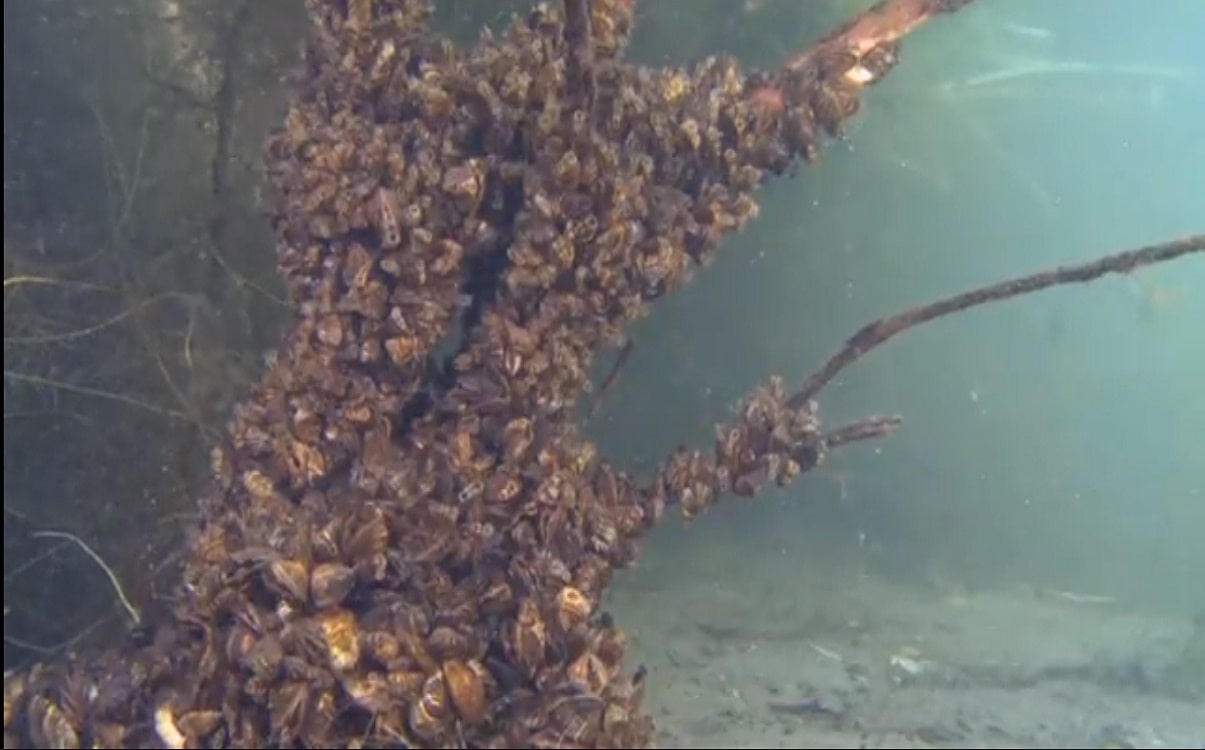No Invasive Mussels Found In Saskatchewan Waters In 2020
Zebra mussels are a small freshwater mussels that is invasive to bodies of water and spread quickly. In recent years, the province have Manitoba has been plagued with Zebra mussels causing extensive damage to water supplies. The species was originally native to the lakes of southern Russia and Ukraine, but has been accidentally introduced to numerous other areas and has become an invasive species in many countries worldwide.
The Saskatchewan Ministry of Environment’s aquatic invasive species (AIS) monitoring program detected no invasive mussels in the 125 waterbodies sampled throughout Saskatchewan last year.
AIS, such as zebra and quagga mussels, are a serious threat to lakes and rivers in Western Canada. They can severely affect aquatic habitat, fisheries, valuable recreational resources and important infrastructure for irrigation, power generation and municipal water supplies.
“Once again, our surveys have shown the effectiveness of prevention activities in protecting Saskatchewan’s lakes and rivers from invasive species threats,” Environment Minister Warren Kaeding said. “Our comprehensive provincial strategy includes monitoring, public awareness and education, as well as roadside watercraft inspections and decontamination, all important components of the program.”

In 2020, the ministry inspected 911 watercraft, identifying 630 as high risk for AIS and requiring further inspection. Ministry staff discovered nine watercraft contaminated with invasive species, and decontaminated a total of 164 watercraft.
As a result of travel restrictions, watercraft movement across the international border was significantly reduced, and most inspections took place near the Saskatchewan/Manitoba border. Throughout 2020, the ministry continued to work with Canada Border Services Agency to co-ordinate the inspection of high-risk watercraft entering the province.
Boaters have an important role to play in AIS prevention by diligently following clean-drain-dry protocols for watercraft and equipment, and by complying with provincial regulations. Anyone transporting watercraft in Saskatchewan must remove the boat plug and stop at watercraft inspection stations to be checked, or risk a $500 fine. It is also illegal to bring prohibited AIS into Saskatchewan.
The threat of AIS is close by – invasive mussels are currently found in Ontario, Manitoba, Quebec, as well as in 34 states, including Montana, North Dakota and Minnesota.
The ministry works closely with Saskatchewan’s AIS Task Force, which includes other government agencies, conservation and non-government organizations and universities. The province also partners with Canada Border Services Agency and other provincial and territorial governments to co-ordinate prevention efforts across Western Canada.









